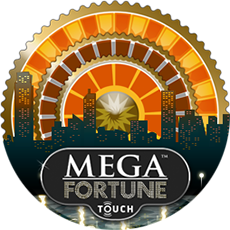A lot of people are wary of playing online pokie games because of uncertainty regarding the security of their money. In fact, with a few basic and common sense precautions taken, online pokies are considerably safer than real casinos. In real casinos, or in pokie rooms in pubs and bars, you have to carry around your money or tokens with you – often in pretty large quantities. Add in some drinking (or a lot of drinking, depending) and a lot of other people, also drinking, who you don’t know or trust, and you’ve got a recipe for losing your money. In fact, pubs and bars are one of the places you’re most likely to get your wallet stolen. If your attention is focused on playing a pokie machine, it’s even more likely to happen. Compare this to playing in the safety and comfort of your own home, and it looks a little different. However, some people are still wary of online transactions and online casinos. Considering the rise in online financial crime, it’s wise to be security conscious and take care of what you do with your money, and to whom you provide your financial details. However, you should also be aware of the safety precautions taken by online casinos, and in fact nearly all companies offering online transactions, such as Ebay or Amazon or probably even your local supermarket.
Thanks to their level of ease and convenience, online payments and transactions have become hugely popular over the last five to ten years and are now extremely common. Online transactions with reputable sites and companies are protected with the most advanced and comprehensive security software that exists.
When you make a purchase with your credit card in a store or a casino or bar, there’s the chance that someone will see your details and make a note of them to abuse later. In safe and secure online transactions, there’s no one that can see this information.
An online casino will require you to make a deposit of funds into the account you have set up with that casino. Usually an online transaction company acts as the third party and mediates the transaction. An example of such a company is Virtual Exchange, but there are many. You will set up an account with the third party mediator company using your credit card or direct debit or another online payment account such as Paypal. Then you can transfer money to your casino account from your third party account and start playing.
There are a few simple steps you can take to further ensure the security of your transactions:
Firstly, do a bit of online research for yourself about the company or the website asking you for your credit card details. Large, well known online casinos are going to be very security conscious, as they want people to feel secure and to come back. Likewise, small unknown casinos might just pop up for a few days or a week, and then disappear again with everyone’s money. It will be pretty easy to find information on the larger, reputable casinos. Another good tip is to do a search with the name of the company along with words like “fraud” or “scam” – this will turn up any articles that other people might have written to help people avoid the scams they were victimized by.
Secondly, make sure that the company takes all the security measures necessary for safe online transactions. This will be easy to find as reputable and trustworthy sites want to reassure consumers and will make this information easy to find and verify. Just click on the “security” link, or similar. If the website doesn’t have this information accessible, this is a good warning sign not to spend your money there.
These common sense steps take just a few minutes and will give you peace of mind. Although it’s true that there are a lot of scammers out there online, these steps will make it very unlikely that you will fall victim to them. And after all, there are a lot of scammers out there in the real world too, and that doesn’t mean you’re staying home and hiding your money under the bed. There’s a small amount of risk in every transaction you make; be aware of them but don’t let them stop you making reasonable and rational choices.


 $7,159,773
$7,159,773
 $1,502,157
$1,502,157
 $5,288,206
$5,288,206